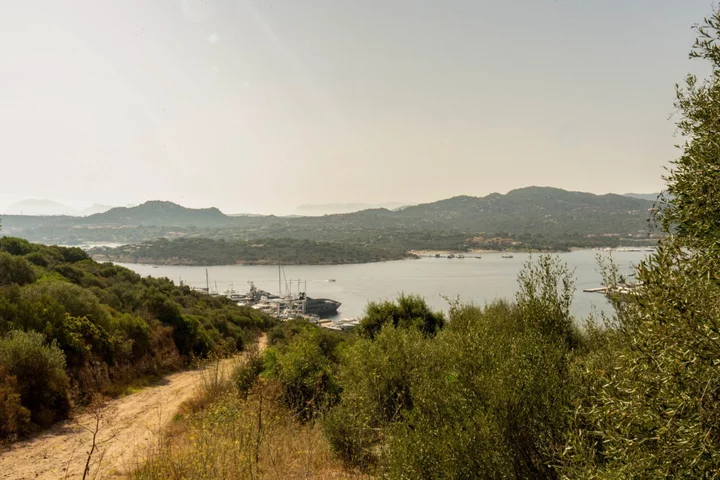Add unprecedented sea temperatures in the Mediterranean to the grim list of heat-related records being smashed this summer.
The Mediterranean’s surface temperature hit 28.7C (83.7F) last week, the highest median recording for any day since at least 1982, according to Spain’s Institute of Marine Sciences. It’s a record that may soon be surpassed, with the sea typically at its hottest in late August.
“The situation is crazy,” said Melanie Juza, a researcher at the Balearic Islands Coastal Observing and Forecasting System, or SOCIB, a public consortium backed by Spain’s government. “The Mediterranean Sea is responding very rapidly to climate change.”
Spikes in the Mediterranean’s surface temperatures may seem less dramatic than what’s happening on nearby land — a scorching 48C was recently reported for Sardinia and local records have been broken this summer in Rome and Catalonia. But for marine life, these sorts of readings are extreme — and could be deadly.
Take Posidonia oceanica, a type of seagrass that grows in vast underwater meadows. Endemic to the Mediterranean, it’s both an enormous carbon sink and a vital nursery for fish. But if the water gets too warm, its growth can be stunted or, even worse, it can die off. Recent temperatures in the Mediterranean have been high enough to potentially cause damage, according to Mauro Randone, a marine-focused scientist working at the World Wide Fund for Nature’s Mediterranean Marine Initiative.
See also: Corals Are Dying. Losing Them Would Be Dire: Mark Gongloff
It’s a similar story for red gorgonians, a type of coral. Typically found at depths of below 25 meters (82 feet), it’s usually safe from swings in sea surface temperature. But marine heatwaves have killed them in the past, and the temperatures seen in recent weeks may also have had an impact, according to Randone.
Simon van Gennip, a research scientist at non-profit Mercator Ocean International, referred to recent sea surface temperatures as “frightening” and described the Mediterranean as “sort of a lab for climate change — it’s one of the fastest warming parts of the ocean in the world.”
Energy from the summer sun, along with the jet stream, have contributed to the Mediterranean Sea’s recent warm temperatures, according to Joel Hirschi, associate head of marine systems modeling at the UK-based National Oceanography Centre.
The jet stream is like “a river of air flowing around the planet, from west to east,” he said. “The Mediterranean Sea was to the south of the jet stream and that opened the gate for very warm air pushing northward into the Mediterranean and southern Europe from North Africa.” Read More: Ocean Temperatures Hit 90F Degrees, Fueling Weather Disasters
What’s happening in the Mediterranean may be alarming scientists, but it’s not the only marine environment suffering from extreme heat. Approximately 44% of the global ocean recently experienced marine heat waves, according to the US National Oceanic and Atmospheric Administration.
Extreme water temperatures are responsible for coral bleaching and harmful algal blooms, among other impacts. One of the most notorious marine heat waves, known as “The Blob,” hit waters off North America’s west coast in the mid-2010s, decimating populations of Pacific cod, seabirds and salmon.
The most accurate image for marine heat is to imagine a forest fire, said Joaquim Garrabou, a senior scientist at the Spanish Institute of Marine Sciences. “The trees and the plants, they cannot move. So they stand there and they suffer.”
Read More: MapLab: Tracking Marine Heatwaves
The Mediterranean Sea is “a climate change hotspot,” with temperatures rising about 1C between 1993 and 2021, according to Mercator. It’s also a hub for biodiversity, hosting up to 18% of known marine species — many of which can only be found there — despite representing just 0.3% of the global ocean by volume.
Warmer water also helps open the door for invasive marine life. In the Mediterranean Sea, species that would have previously found it too cold, such as rabbit fish, can now be found in significant numbers, Randone said.
--With assistance from Laura Millan.









